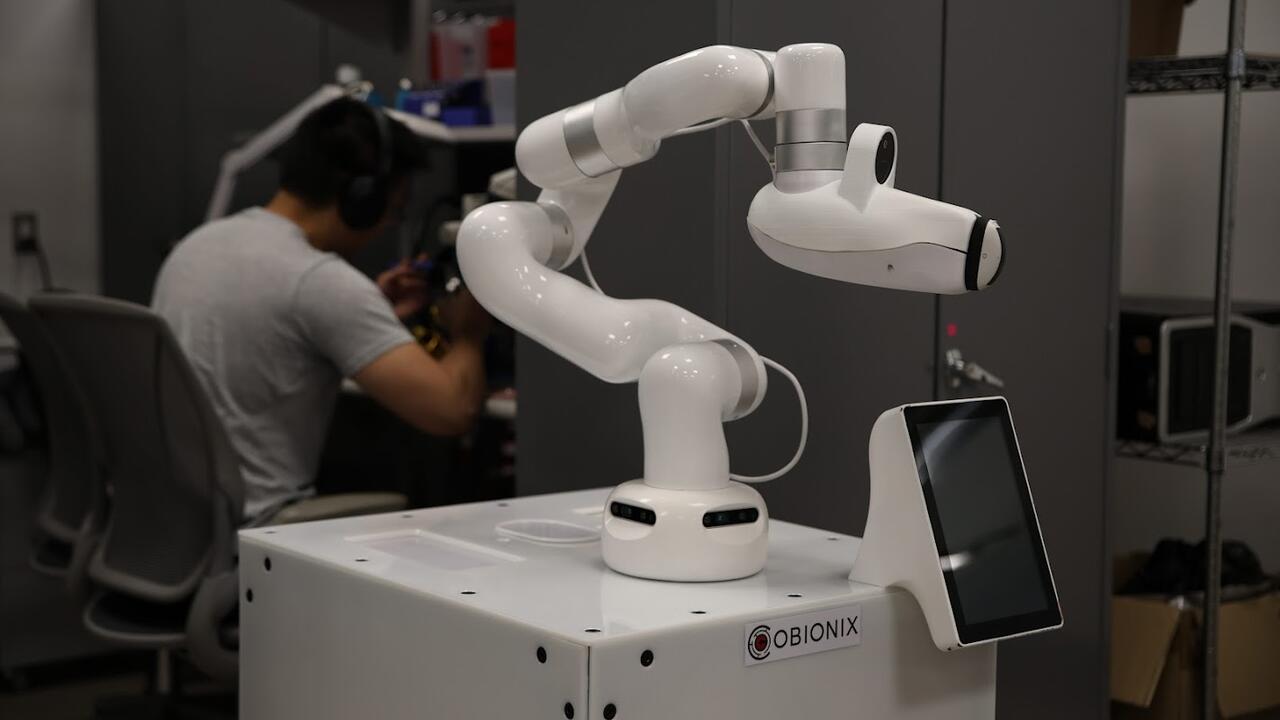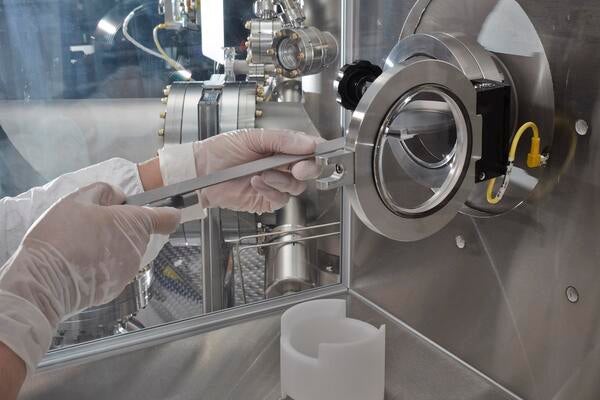
AI-powered robotics system will increase access to diagnostic imaging, improving patient care
Robotics company Cobionix raises a $2.8 million seed round to deploy its commercial robotics system Codi

Robotics company Cobionix raises a $2.8 million seed round to deploy its commercial robotics system Codi
By Media RelationsRobotics company Cobionix has raised a $2.8 million seed round to deploy its commercial robotics system Codi, an industry-first tele-robotic medical imaging tool.
The company, which is part of the University of Waterloo’s Velocity incubator, hopes that Codi will increase access to diagnostic imaging services and save healthcare costs by reducing procedure time, ultimately improving patient care.
“The healthcare field is suffering from a major skilled labour shortage, and we are very excited to help alleviate this problem with autonomous robotic technology that will result in decreased wait times, lower procedure costs and directly improve patient care,” said Dr. Tim Lasswell MD, co-founder of Cobionix.
CEO Nima Zamani said the company’s goal is to combine state-of-the-art robotic hardware with state-of-the-art artificial intelligence to create a seamless robot to human interaction without the user needing high knowledge of engineering or coding.
Cobionix’s initial application was the world’s first autonomous intramuscular injection.
“One of the motivations for that demonstration was seeing the impact of labour shortages during the pandemic,” Zamani said. “And in Canada right now it can be hard to get expedient medical care for critical procedures, like ultrasound, for which there are long wait times and that's something [Cobionix] wants to fix.”
Codi is not a humanoid robot. It can’t walk around, nor do backflips. What it can do far surpasses the image of a flashy robot that has gained foothold in the public consciousness.
“The goal is to have a robot that completes an ultrasound on a patient fully autonomously,” Zamani said. “The robot will already know what kind of ultrasound the patient needs, greet and guide the patient through the procedure’s steps, remote technicians will supervise the procedure and be able to take over control of the robot in case difficulties arise.”
In the near term its technology will be used for non-invasive, repetitive and labour-intensive medical tasks. Over time the company will make robots that can accomplish complex tasks in everyday environments.
Since joining Velocity in the spring of 2021, Cobionix has built a functional product, and passed a milestone audit necessary to manufacture medical devices.
“At Velocity we built a clinical-grade commercial product,” Zamani said. “It is one of the few incubators that are supporting medical device development and we’ve used the space, support, mentorship, and access to investors — Velocity has helped us in many areas.”
Velocity health companies are funded in part by the Government of Canada through the Federal Economic Development Agency for Southern Ontario (FedDev Ontario).

Read more
New Zealand adopts researcher-centric principles after studying Waterloo’s pioneering approach to IP ownership

Read more
Here are the people and events behind some of this year’s most compelling Waterloo stories

Read more
It Started in Waterloo: An Astronaut's Journey into the Universe of Innovation, narrated by Chris Hadfield, highlights the University of Waterloo’s role in igniting innovation within the region and beyond.
The University of Waterloo acknowledges that much of our work takes place on the traditional territory of the Neutral, Anishinaabeg, and Haudenosaunee peoples. Our main campus is situated on the Haldimand Tract, the land granted to the Six Nations that includes six miles on each side of the Grand River. Our active work toward reconciliation takes place across our campuses through research, learning, teaching, and community building, and is co-ordinated within the Office of Indigenous Relations.